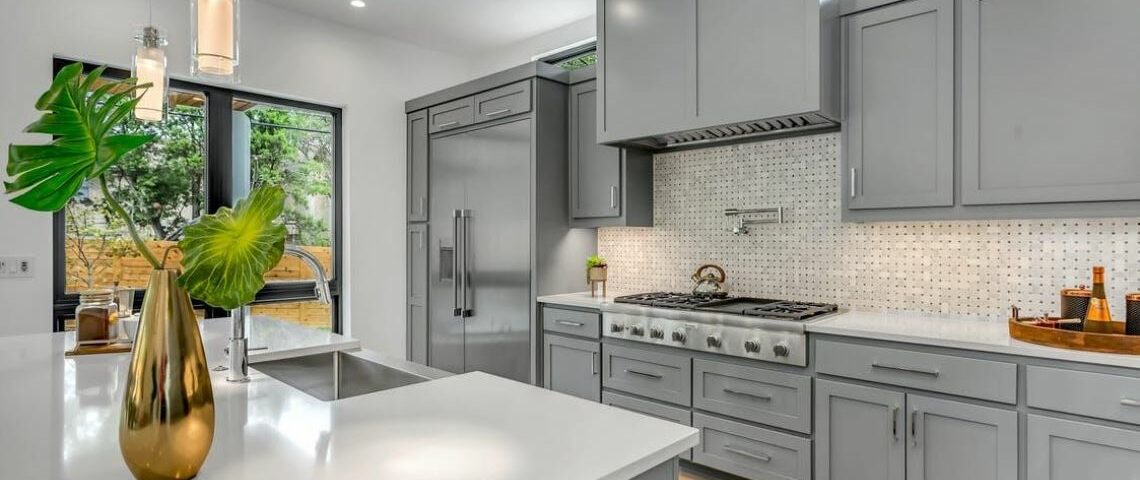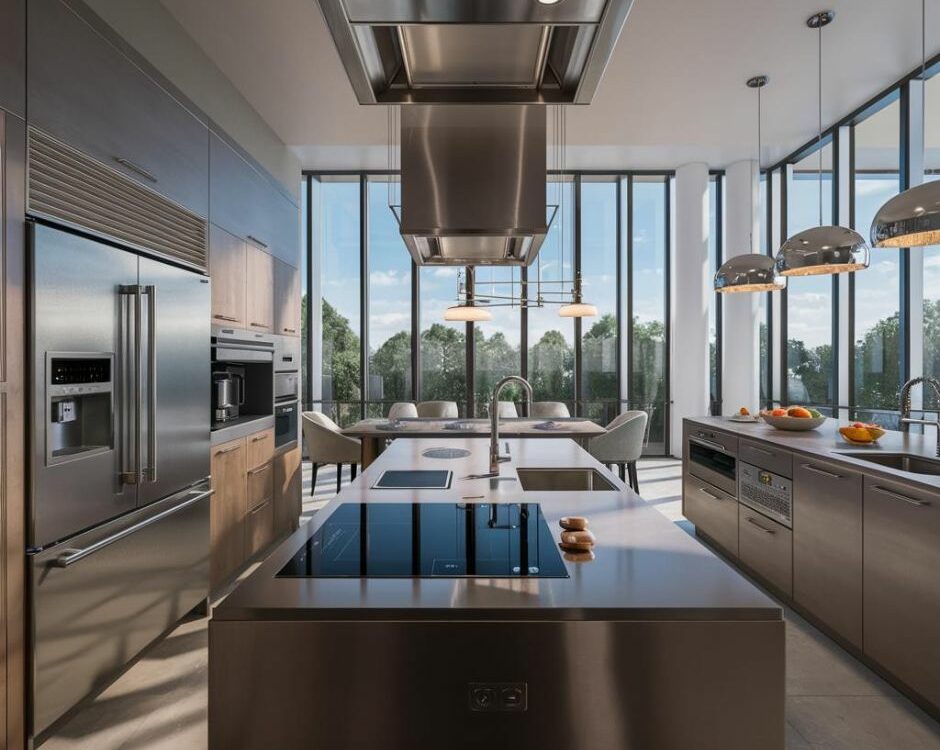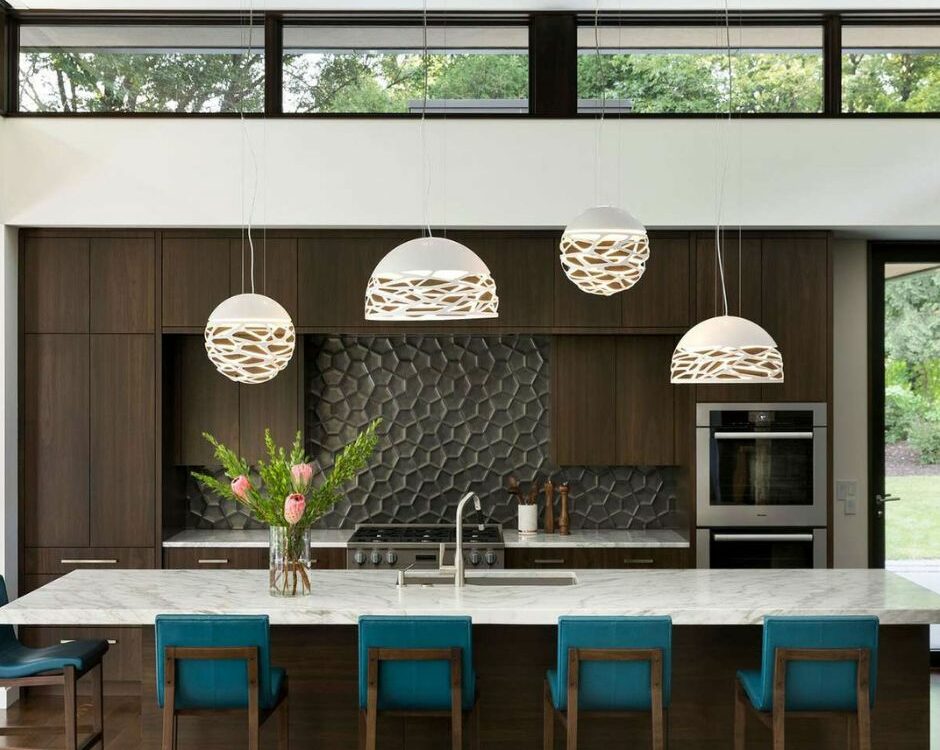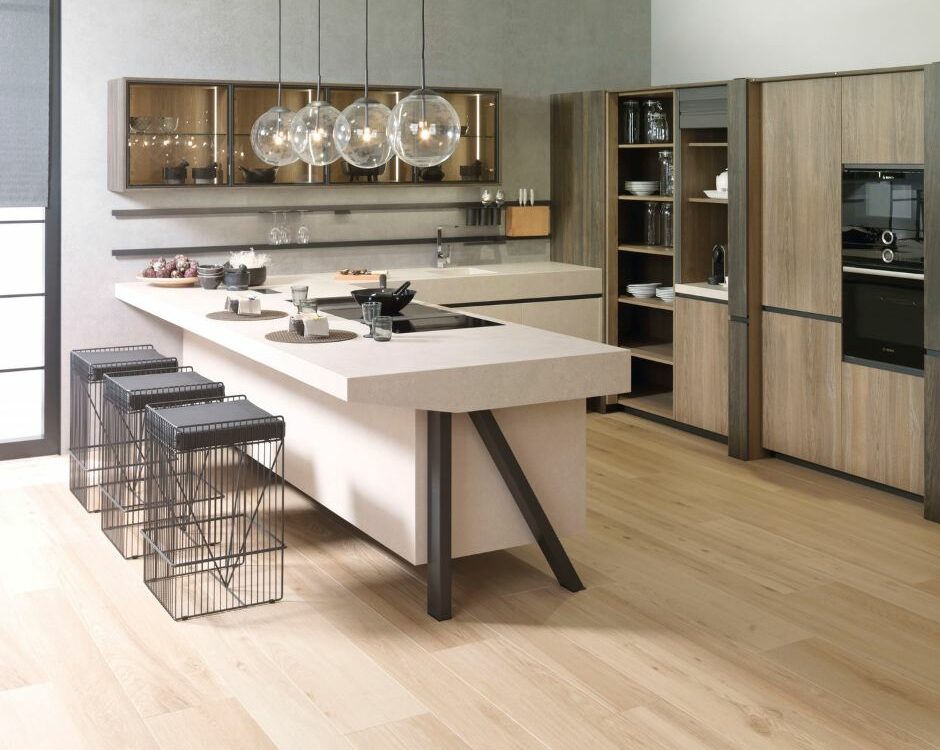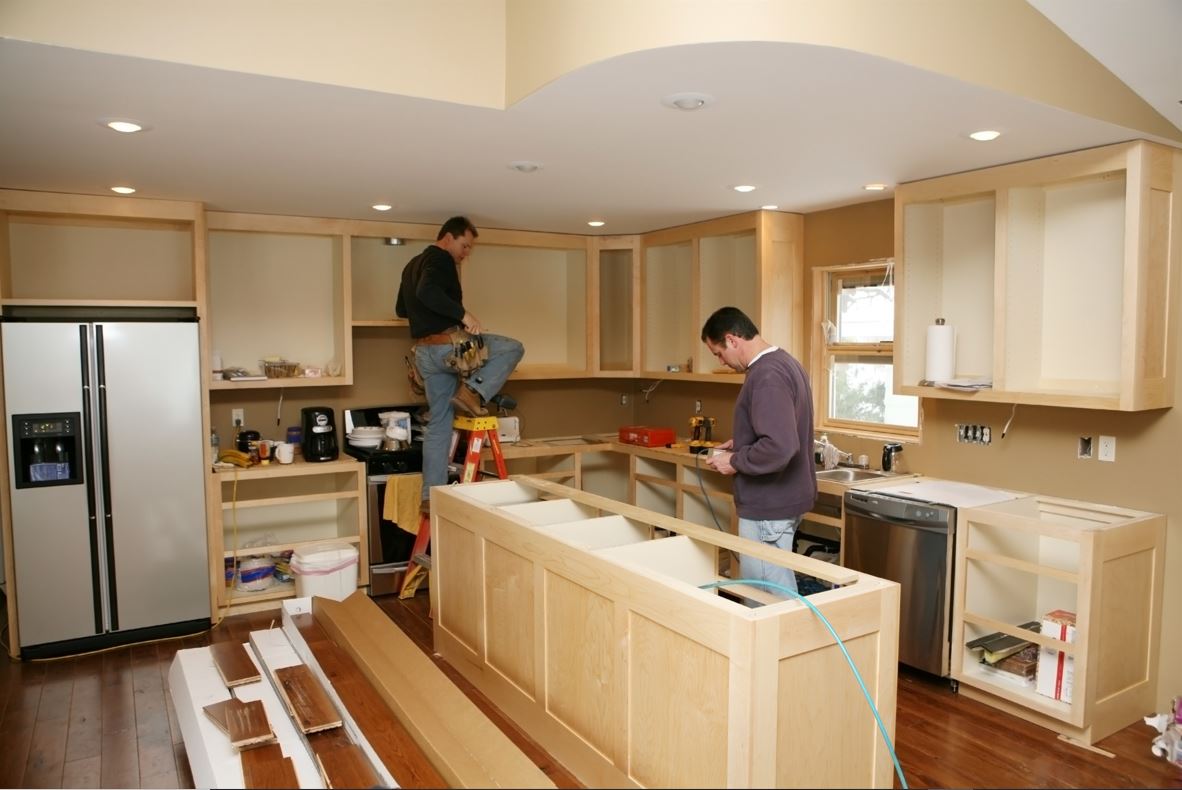
Planning Ahead For A Successful & Efficient Diy Kitchen Remodel
June 19, 2023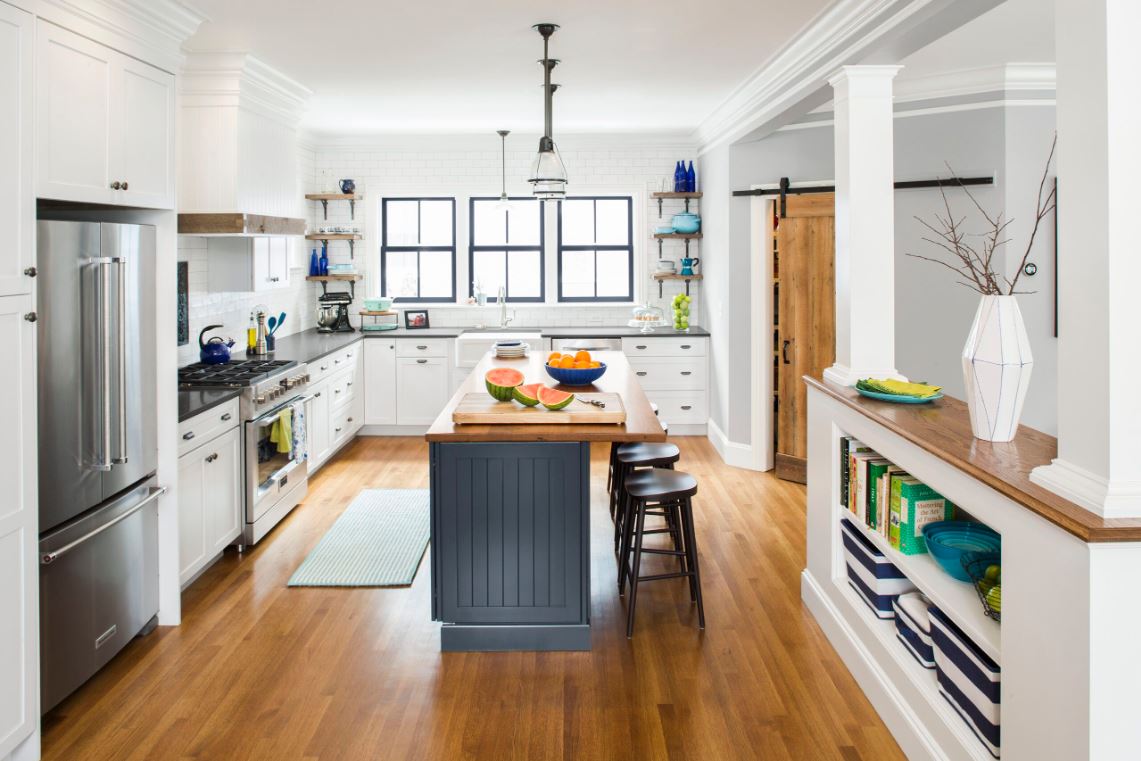
Diy Projects That Will Let You Transform Your Kitchen Without Breaking The Bank
June 19, 2023A kitchen remodeling can be an exciting project, but it can also be a daunting one. Whether you are looking to update your kitchen for personal enjoyment or to increase the value of your home, there are several tips and strategies that can help you make the most out of your DIY kitchen remodel. These strategies include setting a realistic budget, planning your design, and utilizing DIY tips and tricks.
One of the first steps in any renovation project is setting a realistic budget. This will help you determine what materials and services you can afford and prevent overspending. When setting a budget, it is important to consider all aspects of the remodel including materials, labor costs, permits, and any unexpected expenses that may arise during the process.
By having a clear understanding of your financial limits from the beginning, you can avoid making costly mistakes later on in the project. In this article, we will explore various tips and strategies to assist you in creating a functional yet stylish space without breaking the bank.
Set a Realistic Budget
Establishing a feasible financial plan is an indispensable step in any DIY kitchen renovation project, one that requires careful consideration of the extent and complexity of the remodeling work, as well as an assessment of available resources and financing options.
Before embarking on your kitchen remodel, it’s essential to set a realistic budget that takes into account all the expenses involved, from materials and labor costs to permits and unexpected contingencies. To do this effectively, you need to have a clear idea of what you want to achieve with your renovation and how much you’re willing to spend.
One way to establish a budget for your DIY kitchen remodel is to start by creating a list of all the items you’ll need for the project. This should include everything from new cabinets and appliances to flooring, lighting fixtures, and paint.
Once you have this list in hand, research prices online or visit local home improvement stores to get an idea of average costs. Don’t forget to factor in additional expenses such as contractor fees or permit fees if needed.
By taking these steps early on, you can avoid overspending or running out of funds mid-way through your project and ensure that your remodeling efforts are both cost-effective and successful.
Plan Your Design
Designing your kitchen renovation project carefully can help you achieve a functional and aesthetically pleasing space. To start, consider the layout of your kitchen and how it will function for your needs. Take measurements of the space and sketch out different design options to find the best fit. Consider important elements such as where appliances will be placed, how much counter space is needed, and the flow of traffic throughout the room.
Once you have a general idea of the layout, begin selecting specific design elements such as cabinets, countertops, flooring, lighting fixtures, and backsplash tiles. Keep in mind that each element should complement one another while also fitting within your budget constraints. It’s important to take time to research different options and compare prices before making any final decisions.
Additionally, considering hiring a professional designer or contractor who can offer valuable advice on design choices and ensure that everything is installed correctly. By planning your design carefully, you’ll end up with a beautiful kitchen that meets all your needs while also adding value to your home.
– Determine the overall style you want for your kitchen (modern, traditional, farmhouse)
– Choose cabinet styles and finishes that complement this overall style
– Select countertop materials based on durability and functionality
– Incorporate adequate lighting throughout the space
DIY Tips and Tricks
One important aspect to consider when renovating a kitchen is the cost, with an average renovation costing around $25,000 in the United States. DIY kitchen remodeling can be an effective way to save on costs while still achieving a beautiful and functional space. However, it is important to note that taking on a major project like this requires preparation and planning.
Before starting any work, it is essential to create a detailed plan that includes all necessary materials and tools. It is also important to set realistic expectations for the project timeline and budget. One helpful tip for staying within budget is to prioritize which items are most important and allocate funds accordingly.
Additionally, investing in quality materials may ultimately save money in the long run by reducing the need for frequent repairs or replacements. Finally, seeking out advice from professionals or experienced DIYers can provide valuable insights and help avoid costly mistakes.
Frequently Asked Questions
How long does a DIY kitchen remodel typically take?
The duration of a DIY kitchen remodel varies depending on the size and complexity of the project. However, on average, it can take anywhere from six to twelve weeks to complete. Factors such as permits, budget constraints, and unforeseen issues can also affect the timeline.
Can I still use my kitchen during the remodeling process?
It is possible to use your kitchen during the remodeling process, but it may be limited or inconvenient. Consider setting up a temporary kitchen in another area of your home and plan for meal prep ahead of time.
Do I need permits for a DIY kitchen remodel?
Yes, it is likely that you will need permits for a DIY kitchen remodel. The specific permits required will vary depending on the scope of your project and your local building codes. It is important to research and obtain all necessary permits before beginning any construction work.
What are some common mistakes to avoid during a DIY kitchen remodel?
Common mistakes to avoid during a DIY kitchen remodel include poor planning, underestimating costs, choosing low-quality materials or appliances, not considering functional layout and storage needs, and not obtaining necessary permits. Proper research and preparation can prevent these issues.
How do I know if I should hire professionals for certain aspects of the remodel?
Determining when to hire professionals for a DIY kitchen remodel depends on the complexity of the project and individual skill level. Consider hiring experts for electrical work or plumbing, as mistakes can be costly. Like a pilot trusting air traffic control, seek professional expertise when necessary.
Conclusion
A DIY kitchen remodel can be a great way to save money while still achieving the kitchen of your dreams. However, it is important to set a realistic budget and plan your design before jumping in. With careful planning and some helpful tips and tricks, you can make the most out of your DIY kitchen remodel.
Setting a realistic budget is crucial for any remodeling project. Determine how much you are willing to spend and stick to it. Avoid overspending on trendy or unnecessary items that may not add value to your home in the long run.
Planning your design ahead of time will also help prevent costly mistakes and ensure that the end result meets your expectations.
When it comes to actually completing the remodel, there are many DIY tips and tricks that can help save time and money. For example, consider refinishing cabinets instead of replacing them or installing peel-and-stick tiles for an easy backsplash update. Doing as much work as possible yourself can also cut down on labor costs.
As the saying goes, ‘measure twice, cut once.’ This applies not only to physical measurements but also in terms of carefully considering all aspects of your DIY kitchen remodeling before diving in headfirst. By setting a realistic budget, planning ahead, and utilizing helpful tips and tricks along the way, you can achieve a beautiful new kitchen without breaking the bank.
Diy Projects That Will Let You Transform Your Kitchen Without Breaking The Bank
Planning Ahead For A Successful & Efficient Diy Kitchen Remodel

